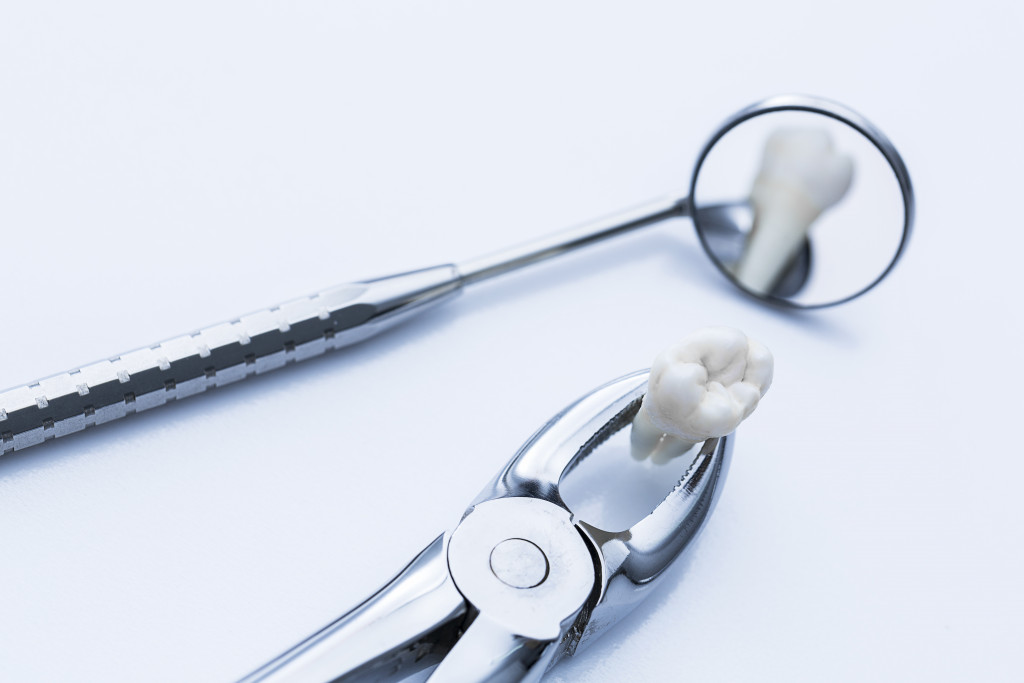The wisdom tooth, also known as the third molar, is located at the back of the mouth and is usually last to develop among other teeth. A person normally has four wisdom teeth, one in every corner of the jaw. The tooth usually comes out during the mid-teen years or the early twenties, from 17 to 21 years old.
It is called a wisdom tooth because its growth usually happens during a person’s maturity; maturity is often linked with wisdom. However, not most people get a complete set of wisdom teeth.
Wisdom Teeth Growth
According to the American Dental Association, since wisdom teeth are located in the far back of the mouth, they usually do not aid much in chewing food. At the same time, they are challenging to clean because of their inconvenient location in the mouth. This is why most dentists recommend removing the wisdom tooth to avoid complications.
Moreover, wisdom tooth growth does not always happen for every adult. Some wisdom teeth break out, but only part of the tooth shows. It has been reported that in Europe, most young adults have at least one wisdom tooth that has not grown or broken through. A common reason is that the jaw does not have enough space to accommodate another tooth.
When the jaw does not have enough space, the wisdom teeth may grow crooked because other teeth are in the way.
Impacted wisdom tooth
An impacted wisdom tooth happens precisely because of the lack of space in the mouth for another tooth. This complication is also used to describe a wisdom tooth that has grown in an abnormal position due to obstruction. One with an impacted wisdom tooth may suffer from pain and swelling; it can also negatively affect other teeth and bone surrounding it.
The lack of space for the wisdom teeth happens because of the time it usually grows. Since it grows during adulthood, individuals already have developed 32 permanent teeth. In this case, smaller jaws can no longer accommodate four additional wisdom teeth; this prevents the proper growth of wisdom teeth, growing in an awkward position.
Types Of Impaction
Different types of impactions can be determined by a dentist or an oral surgeon. They will usually perform an x-ray to see the location of the wisdom teeth and how they may be removed.
A soft tissue impaction is an impaction that happens when there is no adequate space for the gum tissue that will allow proper cleaning of the tooth. On the other hand, partial bony impaction occurs when the jaw lacks space for a partial eruption of the wisdom tooth. In this case, the tooth hinders the chewing process and creates difficulty in cleaning, too.
Meanwhile, a complete bony impaction is a total lack of space for tooth eruption. The wisdom tooth remains hidden or embedded within the jaw bone. When this happens, a person may need to go through surgery, and an expert oral surgeon with excellent techniques is required.
A complete bony impaction may be even harder to remove when it has partially grown in an unusual position. At the same time, the shape of the face and jaw bone may affect the complexity of the procedure.

What happens when an impacted tooth is not removed?
When an impacted tooth is not removed, it may lead to inflammation of the gums, pain, and swelling. It can also push other teeth and cause overcrowding. Overcrowding may cause teeth to overlap with each other and shift positions.
Additionally, it can be dangerous to neglect impacted wisdom teeth because it can cause problems with the jawline. It may cause difficulty in opening and closing the jaw. Since wisdom teeth are hard to reach and difficult to clean, tooth decay is a possible complication, too. It does not only cause decay of the wisdom tooth but other teeth next to it, too.
Whether a wisdom tooth is impacted or not, constant monitoring and thorough cleaning are needed to prevent tooth decay and other dental issues.
When to get your wisdom tooth removed
The moment you experience extreme pain, it is time to visit the dentist. Dentists can properly recommend if one needs to get a wisdom tooth removed or not. If you’re not in pain, you would not have to worry about it at the moment.
It’s not advisable to remove the wisdom tooth just because one wants to. As discussed above, wisdom tooth removal may need more complicated surgery; undergoing surgery when it is not necessary may cause complications of its own.

